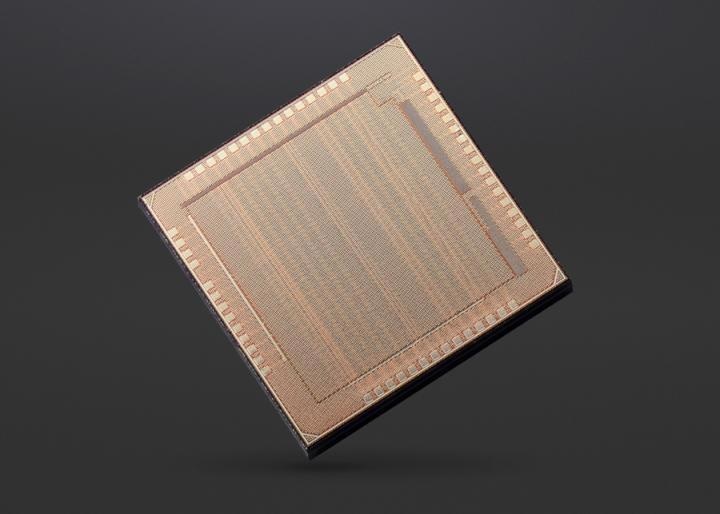
Image Credit: Swiss Center for Electronics and Microtechnology (CSEM).
A drawback of AI technology is that it often consumes a lot of power and, in a majority of cases, had to be permanently connected to the cloud, which raises concerns over data protection, energy use and IT security.
In addition to this, the system is completely modular and can be customized to any application that requires real-time image and signal processing, particularly when sensitive data is involved. The device will be demonstrated at the prestigious 2021 VLSI Circuits Symposium in Kyoto in June 2021.
The CSEM system-on-chip is based on a completely new signal processing architecture that reduces the amount of power required. The device features an ASIC chip with a RISC-V processor (also designed at CSEM) and two closely coupled machine-learning accelerators — one for face detection and the other for classification. The first accelerator is a binary decision tree (BDT) engine capable of performing simple tasks but cannot carry out recognition operations.
When our system is used in facial recognition applications, for example, the first accelerator will answer preliminary questions like: Are there people in the images? And if so, are their faces visible? If our system is used in voice recognition, the first accelerator will determine whether noise is present and if that noise corresponds to human voices. But it can’t make out specific voices or words—that’s where the second accelerator comes in.
Stéphane Emery, Head of System-on-Chip Research, CSEM
The second accelerator is essentially a convolutional neural network (CNN) engine capable of performing more complex tasks, such as detection of specific words and recognition of individual faces. However, this accelerator also consumes more energy. This two-tiered data processing method considerably reduces the power requirement of a system, as most of the time it is only the first accelerator running.
As part of their study, the engineers have improved the performance of the accelerators to make them adaptable to any application that requires image processing and time-based signal.
Our system works in basically the same way regardless of the application. We just have to reconfigure the various layers of our CNN engine.
Stéphane Emery, Head of System-on-Chip Research, CSEM
The CSE’s breakthrough paves the way for a whole new generation of devices with processors capable of running independently for more than a year. It also significantly reduces the installation and maintenance costs for these devices and facilitates their use in places where it is difficult to change batteries.
AI system on chip runs on solar power
CSEM engineers have developed an integrated circuit that can carry out complicated artificial-intelligence operations like face, voice and gesture recognition, and cardiac monitoring. Powered by either a tiny battery or a solar panel, it processes data at the edge and can be configured for use in just about any type of application. Video Credit: Swiss Center for Electronics and Microtechnology (CSEM).